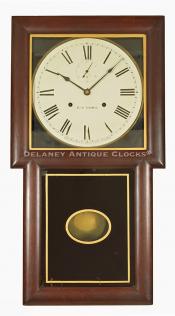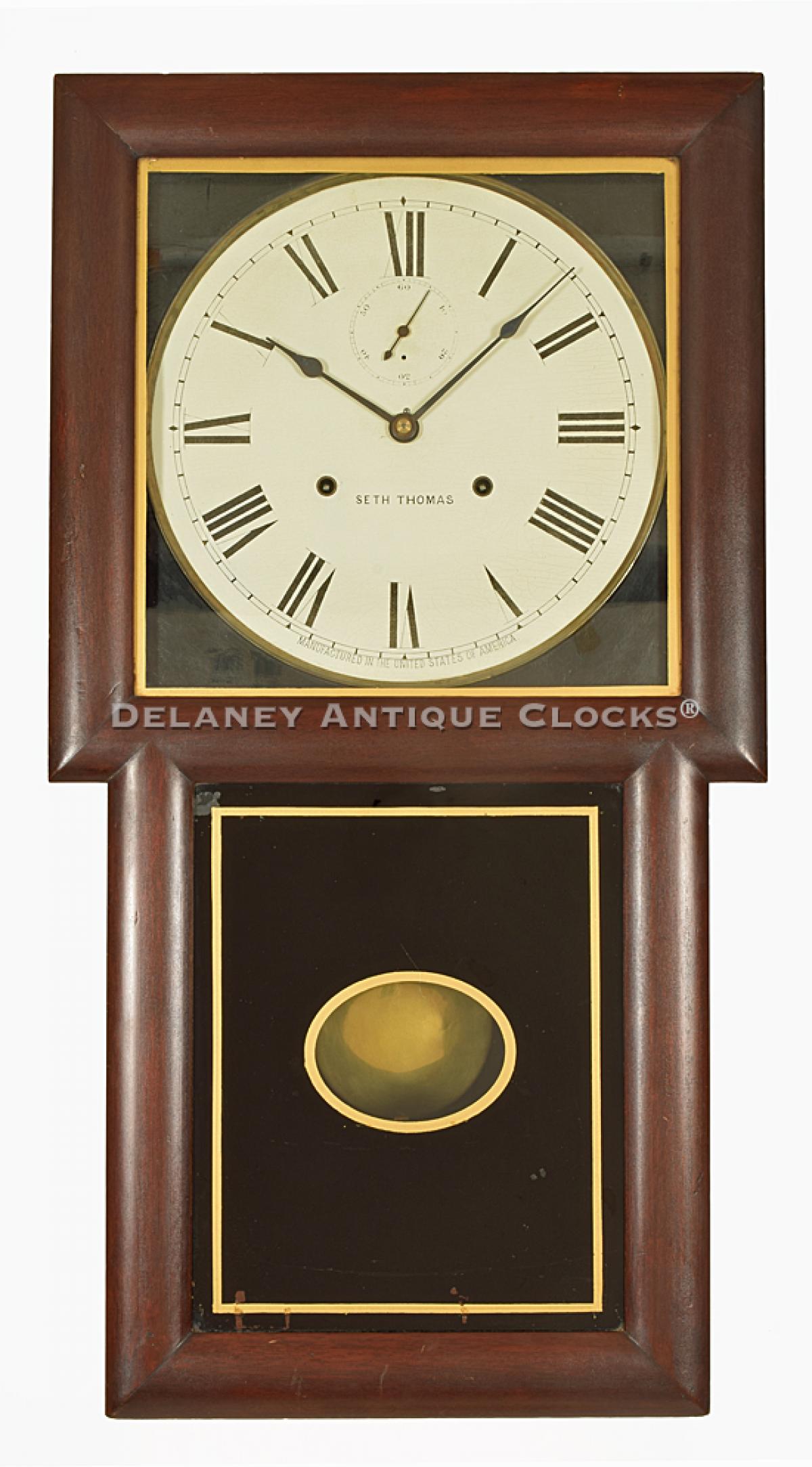Seth Thomas "Litchfield." 30-day time only wall clock. MM-132.
The Seth Thomas Clock Company made this 30-day wall clock. It is listed in their 1909 catalog as the “Litchfield” model. The case wood is mahogany and retains an older finish that has been waxed over. The movement is a double-spring time-only design. It is designed to run 30 days before it needs to be wound again. The movement is brass, features a Graham dead-beat escapement, and is secured to an iron bracket, which is mounted to the back of the case. The pendulum bob is brass and can be viewed through the clear opening in the lower glass. Both glasses are painted black and feature framing that is painted in gold. The dial is painted on tin and measures 12 inches in diameter. This dial is original to this clock. It displays the Maker’s name, a Roman numeral time ring, and a subsidiary seconds dial.
This clock was made circa 1909 and measures 31 inches long.
Inventory number MM-132.
Seth Thomas was born in Wolcott, Connecticut, in 1785. He was apprenticed as a carpenter and joiner and worked building houses and barns. He started in the clock business in 1807, working for clockmaker Eli Terry. Thomas formed a clock-making partnership in Plymouth, Connecticut, with Eli Terry and Silas Hoadley as Terry, Thomas & Hoadley. In 1810, he bought Terry's clock business, making tall clocks with wooden movements. Seth chose to sell his shares in the partnership in 1812, moving in 1813 to Plymouth Hollow, Connecticut, where he set up a factory to make metal-movement clocks. In 1817, he added shelf and mantel clocks. By the mid-1840s, He successfully transitioned to brass movements and expanded his operations by building a brass rolling mill and a cotton factory. In 1853, He incorporated the business but continued to be the majority shareholder. This clock business expanded until it became one of the "BIG Seven" in Connecticut. Their product line had offerings that competed at every price point, from kitchen clocks to precision regulators. Seth Thomas died in 1859. The community of Plymouth Hollow so revered him that they changed the name on July 6, 1875, to Thomaston in his honor. After his death, his son, Aaron, took over the company's leadership. Aaron is credited with increasing the business by adding a number of new case styles and improving production methods. The company went out of business in the 1980s.






